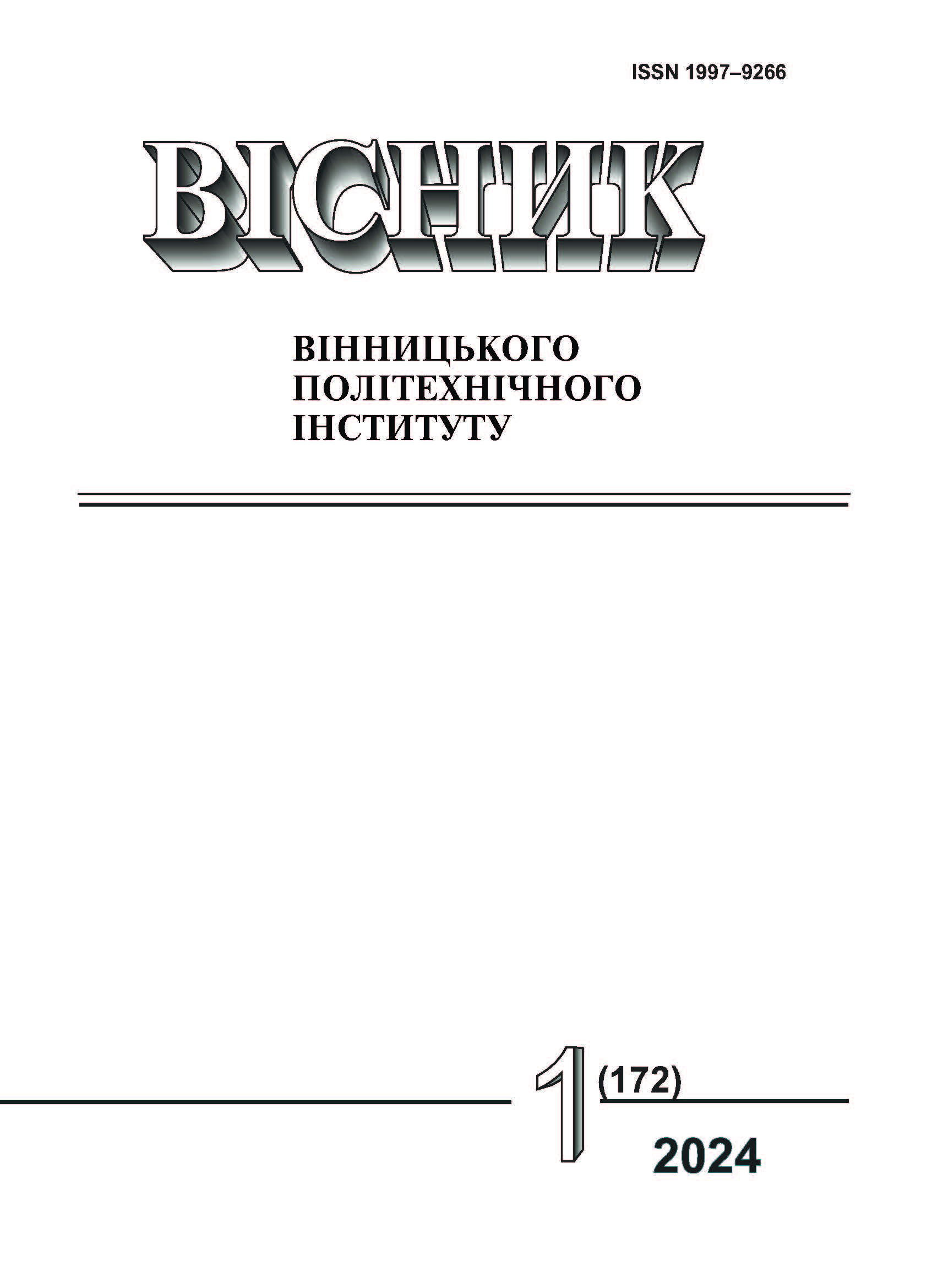Decoding Difficulty Estimation of the Convolutional Turbo-Codes and Turbo-Product Codes
DOI:
https://doi.org/10.31649/1997-9266-2024-172-1-51-55Keywords:
data transmission, error correction code, convolutional turbo-code, block turbo-product, decoding, complexity estimationAbstract
In the period of rapid development of modern digital technologies, taking into account the increase in communication range and information volumes, provision of reliable data transmission is an integral requirement for communication systems of various functional purposes (space communications, digital television, programmable radio systems, optical communications, digital data storage, etc.). In this context, turbo-codes stand out, which represent a powerful class of error correction codes with a unique codec structure, able to work efficiently at high speeds and almost totally use the capacity of communication channels. However, the effective use of turbo-codes is associated with significant computing costs at the decoding stage, which creates a significant load on the system, especially in the working "online"-mode and in case of limitations on the part of the computing platform. Understanding the impact of turbo-code parameters on their decoding computational complexity enables to provide the balance between the error correction reliability and the efficiency of using computing resources in various communication scenarios.
That is why, the article analyzes in detail the computational complexity of the decoding process of these codes. The iterative exchange probabilistic algorithms of Berrou–Glavieux–Thitimajshima, Viterbi-Hagenauer and extended Pyndiah-Chase list decoding were selected as the main decoding algorithms. In this work, generalized analytical expressions of the decoding complexity depending on several parameters of convolutional and block component codes in the case of turbo-code implementation in mixed mode using a digital signal processor are obtained, and corresponding graphical representation of the research results is given. The article is of practical importance for engineers and designers of digital data transmission systems, as it helps to analyze and synthesize more efficiently turbo-codes depending on the set requirements.
References
F. L. Morgos, A.-M. Cuc, and C. Grava, “Performance Analysis of Turbo Codes, LDPC Codes, and Polar Codes over an AWGN Channel in the Presence of Inter Symbol Interference,” Sensors, 19 p., 2023. https://doi.org/10.3390/s23041942 .
C. Berrou, A. Glavieux, and P. Thitimajshima, “Near Shannon Limit Error-Correcting Coding and Decoding: Turbo-Codes,” Proceedings of the ICC, pp. 1064-1070, 1993. https://doi.org/10.1109/ICC.1993.397441 .
J. Woodard, and L. Hanzo, “Comparative Study of Turbo Decoding Techniques: An Overview,” IEEE Transactions on Vehicular Technology, pp. 2208-2233, 2000. https://doi.org/10.1109/25.901892 .
Ю. Ю. Іванов, «Експериментальне дослідження завадостійкості турбо-кодів: числові оцінки та імітаційне моделювання нового субоптимального алгоритму PL-log-MAP,» Вісник Вінницького політехнічного інституту, № 5, с. 76-84, 2016.
Ю. Ю. Іванов та ін., «Особливості оцінювання параметрів процесу передавання даних із використанням турбо-кодів,» Метрологія і прилади, № 3 (65), c. 25-32, 2017.
B. O. Bodnarenko, and Yu. Yu. Ivanov, “Convolutional Turbo-codes Decoding Using SOVA Modifications,” in Proceedings of the Science and innovation of modern world, X International Scientific and Practical Conference, 2023, pp. 144-146.
Yu.Yu. Ivanov, and V. V. Kovtun, “Crypto Coding System Based on the Turbo Codes with Secret Keys,” ICT Express, 2023, 6 p., https://doi.org/10.1016/j.icte.2023.08.007 .
R. Pyndiah et al., “Near Optimum Decoding of Product Codes,” in IEEE Global Telecommunications Conference GLOBECOM, 1994, pp. 339-343, https://doi.org/10.1109/GLOCOM.1994.513494 .
R. Pyndiah, “Near-Optimum Decoding of Product Codes: Block Turbo Codes,” IEEE Transactions on Communications, pp. 1003-1010, 1998. https://doi.org/0.1109/26.705396 .
A. Al-Dweik, H. Mukhtar, and A. Shami, “Turbo Product Codes: Applications, Challenges, and Future Directions,” IEEE Communications Surveys & Tutorials, pp. 3052-3068, 2016. https://doi.org/10.1109/COMST.2016.2587863 .
Ye. O. Zvuzdetskyi, and Yu. Yu. Ivanov, “List Decoding of Block Turbo-Products-Codes,” Scientific research in the modern world, Proceedings of the 8th International Scientific and Practical Conference, 2023, pp. 199-201.
D. J. Costello Jr. et al., “A Comparison of Low Complexity Turbo-like Codes,” in Conference Record of the Thirty-Sixth Asilomar Conference on Signals, Systems and Computers, 2002., 5 p., https://doi.org/10.1109/ACSSC.2002.1197142 .
С. В. Зайцев, С. П. Ливенцев, и Б. В. Горлинский, «Оценка сложности реализации алгоритмов декодирования турбо-кодов при декодировании бита информации на цифровых сигнальных процессорах,» Метрологічне забезпечення системи захисту інформації в Україні, № 2 (13), с. 183-188, 2006.
S. Yoon, B. Ahn, and J. Heo, “An Advanced Low-Complexity Decoding Algorithm for Turbo Product Codes Based on the Syndrome,” EURASIP Journal on Wireless Communications and Networking, № 126, 31 p., 2020, https://doi.org/10.1186/s13638-020-01740-2 .
ADSP-21065L SHARC Processor User’s Manual. [Electronic resource]. Available: https://www.analog.com/media/en/dsp-documentation/processor-manuals/37788354774923823818314265L_book_um.pdf . Accessed: 12.11.2023.
M. Lalam et al., “An Improved Iterative Decoding Algorithm for Block Turbo Codes,” in IEEE International Symposium on Information Theory, 2006, pp. 2403-2407. https://doi.org/10.1109/ISIT.2006.262019 .
Downloads
-
PDF (Українська)
Downloads: 44
Published
How to Cite
Issue
Section
License

This work is licensed under a Creative Commons Attribution 4.0 International License.
Authors who publish with this journal agree to the following terms:
- Authors retain copyright and grant the journal right of first publication.
- Authors are able to enter into separate, additional contractual arrangements for the non-exclusive distribution of the journal's published version of the work (e.g., post it to an institutional repository or publish it in a book), with an acknowledgment of its initial publication in this journal.
- Authors are permitted and encouraged to post their work online (e.g., in institutional repositories or on their website) prior to and during the submission process, as it can lead to productive exchanges, as well as earlier and greater citation of published work (See The Effect of Open Access).





